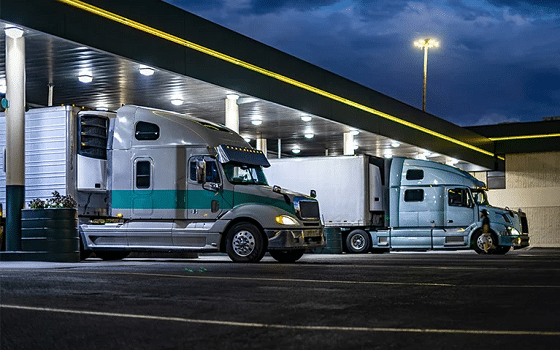
January 27, 2026

3551 Views

6 min read
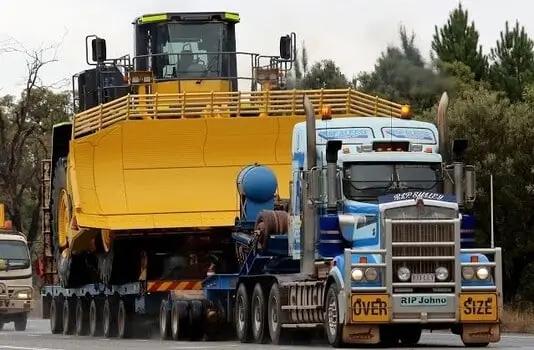
November 19, 2022

2627 Views

8 min read
When it comes to heavy haul logistics, carriers need to have a detailed plan and the right equipment for the job. To ensure everything goes smoothly, it’s important to invest in specialized knowledge and expertise. By doing so, you can avoid making multiple stops and warehouses before finally reaching the destination. Having an efficient heavy-hauling operation requires both strategy and tactics.
In this article, we will get a deep understanding of what heavy haulage is, the different types of heavy haulage, and some tips for running a successful heavy haulage operation.
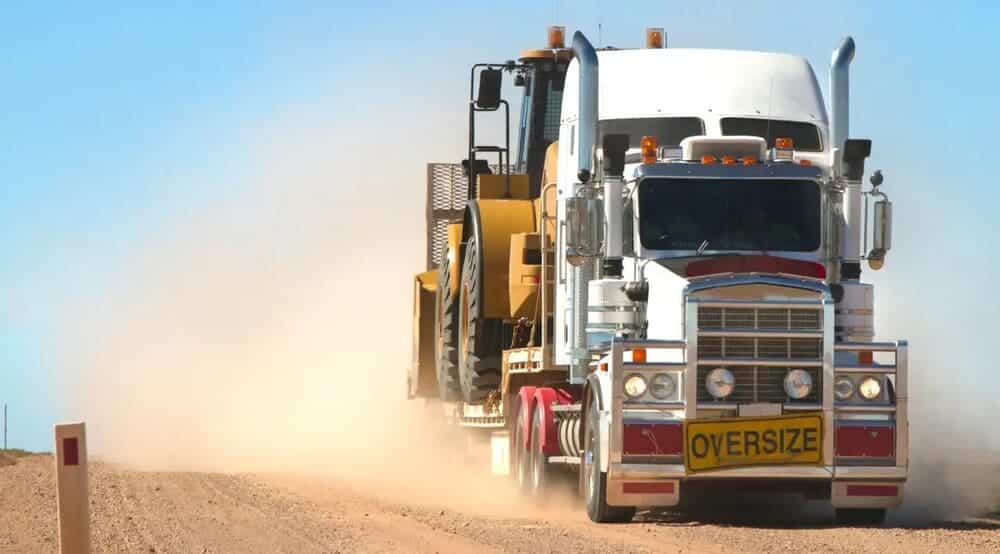
Heavy hauling is the transport of oversized or overweight loads. These loads typically exceed the legal limits for standard trucks and require a special permit to be transported on public roads.
Depending on the country, vehicles used for heavy-haul operations must meet certain gross combination weight ratings (GCWR). For example, the GCWR must be 80,000 pounds (36,000 kg) or more in the US. When it comes to loads, large or heavy items, such as large machinery or construction materials, fall into the category of heavy hauling. These types of loads require specific types of trailers to transport them.
The maximum axle weight limit for single-axle vehicles is 20,000 pounds (9,100 kg). The maximum axle weight limit for tandem vehicles is 34,000 pounds (15,000 kg).
The purpose of setting weight limits is to help preserve public infrastructure and prevent damage to roadways. Overweight and oversized loads put extra strain on bridges, pavement, and other roadway features.
The type of vehicle used for heavy haul operations depends on the load’s size and weight. For example, a load that exceeds the legal limits for standard trucks may require using a lowboy trailer with a lower loading deck that allows for transporting taller loads.
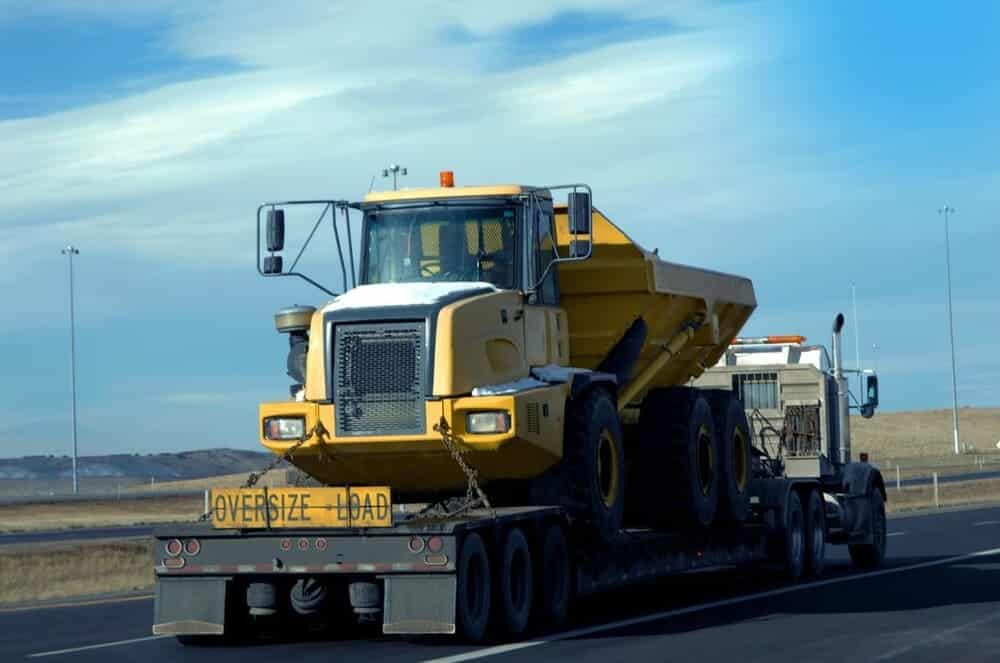
There are many challenges that carriers face when transporting heavy loads. First, extra care must be taken to ensure the load is properly secured and will not shift during transport. This can be difficult and time-consuming, especially for large or oddly-shaped loads.
Secondly, routes must be carefully planned in advance to avoid low bridges, tight turns, and other obstacles that could damage the load or the truck.
Finally, carriers must be prepared for unexpected delays, such as bad weather or road closures, which can add significant time and cost to the delivery.
Heavy hauling is a complex task. Before help can be provided, there are some things carriers should keep in mind.
Do The Homework
First, the carrier needs to be capable, reliable, and trustworthy. The route should be planned in advance, considering any restrictions or obstacles. This will help avoid any delays or accidents.
You will need to get a permit from the authorities before you can move the load. This ensures that the load does not exceed the weight limit and is safe to transport.If you use equipment to move the load, choose the right one for the job. This includes trailers, cranes, or any other equipment.
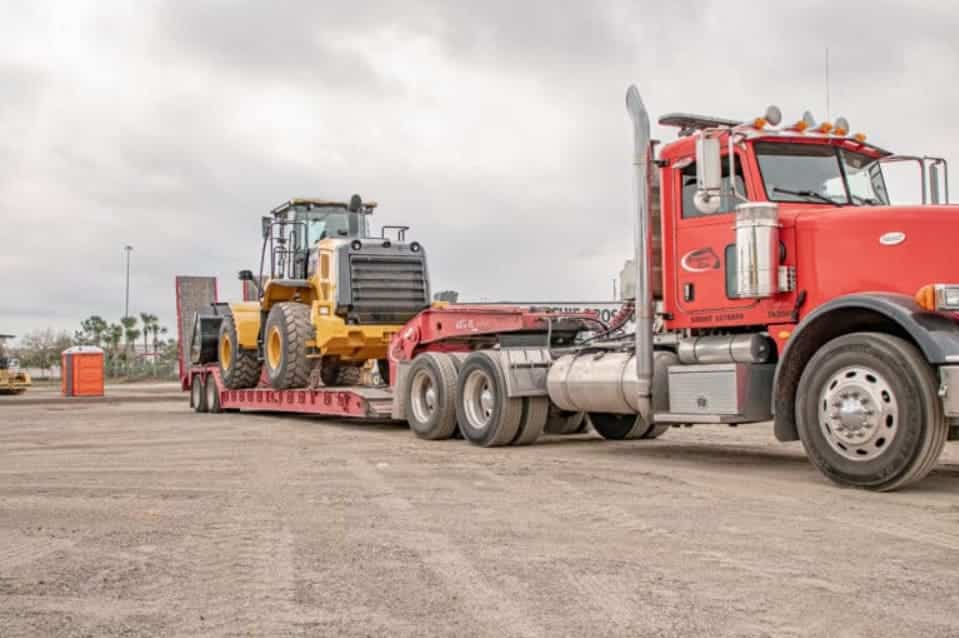
The shipper should be informed of the expected arrival time and date. They should also be given the carrier’s contact information if any changes occur.
The authorities will inspect the load before it is allowed to continue. Be prepared for this and have all the necessary documents ready.
Each state has its own regulations regarding the transport of heavy loads. Familiarize yourself with these regulations before setting out on your journey.
Having a backup plan in case of unexpected delays or difficulties is always a good idea. This could include having a second truck on standby in case the first one breaks down or arranging alternative routes in case of road closures.
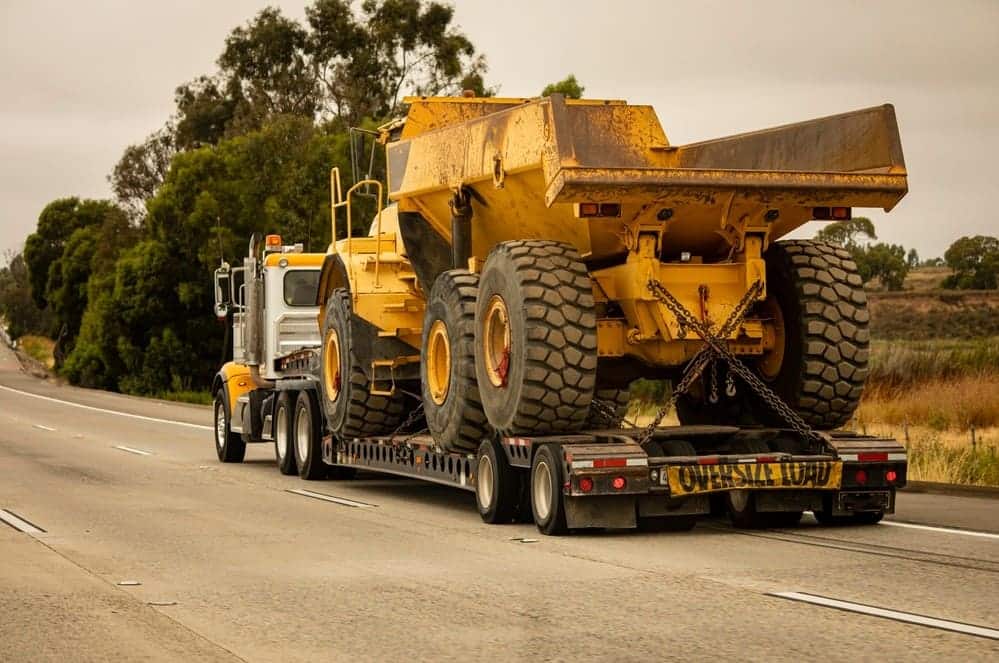
Communication is the key to success in logistics. Anytime you are working with another party, make sure you have open communication lines. This includes the carrier, the shipper, and the crew.
Provide your employees with the training they need before they start working.
Make sure everyone signs all the necessary documents, such as the Bill of Lading, or you may need help getting paid. Proper planning can go a long way toward making your operation successful.
The heavy-haul trucking industry is vital to the economy. But it’s also an industry with its -haul carriers to think about.
But with a little planning, it doesn’t have to be so tough. Here are some tips to help you manage your operation more effectively.
The first step is to develop a loading strategy. This will help you determine how much weight your truck can safely carry and how to best distribute that weight. You’ll also need to consider the route and any potential hazards.
Depending on the size of your operation, you may need to use technology to help plan your route. There are many software systems out there that are designed to assist with the heavy haul industry. These programs allow you to map the routes, stops, and necessary details.
These route planning software systems can be helpful if:
If your operation is heavily dependent on heavy hauls, you should consider investing in specialized equipment. Specialized equipment is often more expensive, but it is often more efficient.
The people you hire will make or break your operation. If you hire the wrong people, you will encounter plenty of problems.
It is important to properly screen and vet your candidates. Ask for references and review their backgrounds. Make sure your employees get the training they need. This can help prevent issues from arising later on.
When hauling large items, it can be easy to forget about the safety of your equipment. You should always perform routine maintenance on your vehicles and trailers. You should regularly check all the lights, tires, brakes, and other important equipment. You want to avoid hauling an overweight load because of poor maintenance.
The high hauling cost will depend on several factors, such as your operation’s size, equipment, and loads. The costs associated with heavy hauling are often higher than those associated with lighter hauls. You should always get quotes from different companies before you choose a hauler. Make sure you compare the prices and services offered. You want to find the best deal possible.
You need to think about two things when packing the cargo for a heavy haul load.
First, you must ensure the items are properly secured in the trailer. Second, the items need to withstand the trip without coming loose or causing damage. There are a few things you can do to ensure the cargo is properly packed:
If you’re looking for a US truck dispatch company to transport your freight, look no further than FleetCare. We’re here to help you with all your trucking needs, including heavy hauling. We have a team of experienced dispatchers who will work with you to find the best route and get your freight where it needs to go on time and within budget.
We also have a team of load planners who will help you properly pack your cargo and make sure it is properly secured for transport. We want to help you make your heavy hauling operation as efficient and safe as possible. If you’re ready to start, contact us today, and we’ll help you get your operation up and running.
Test